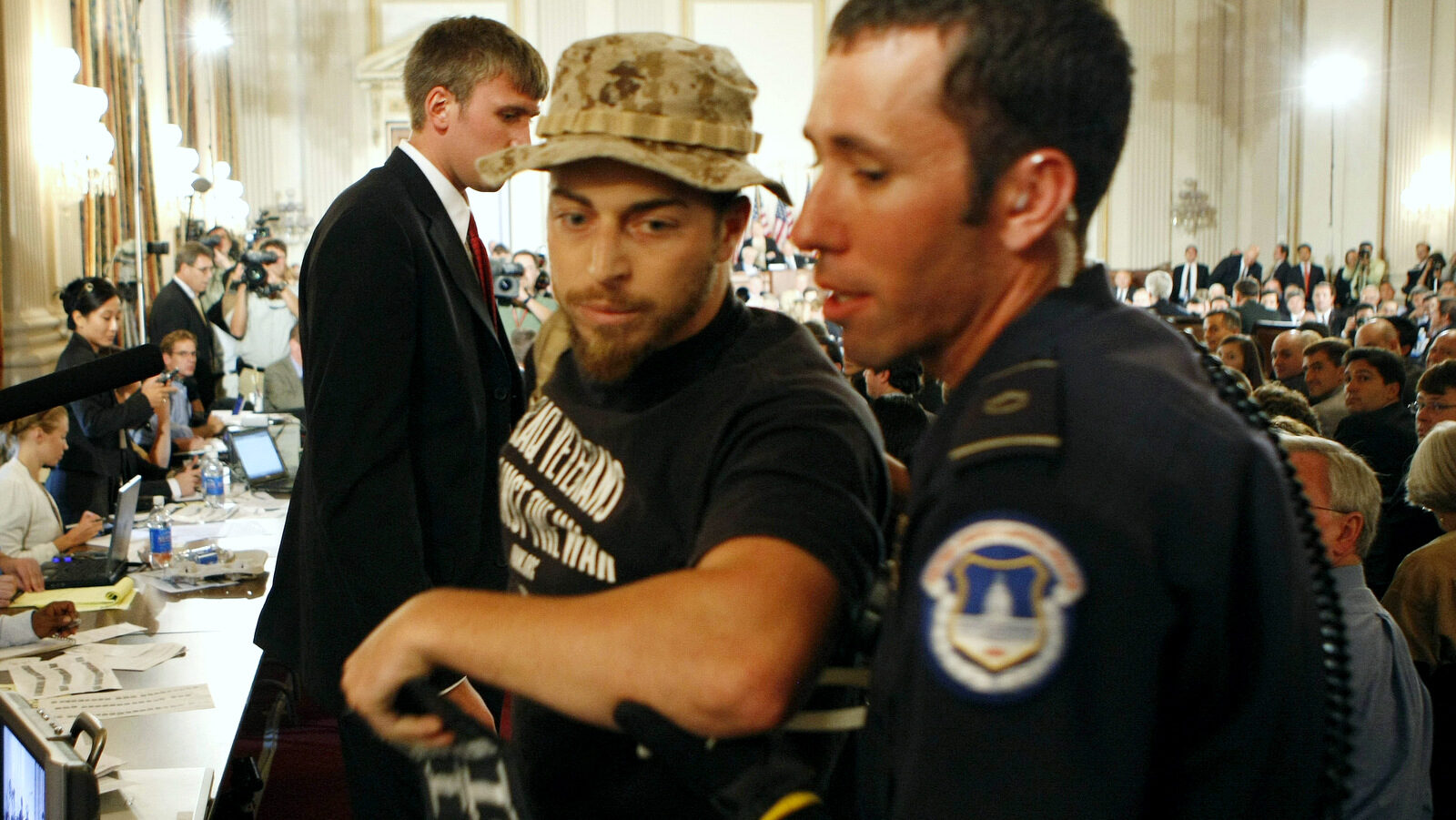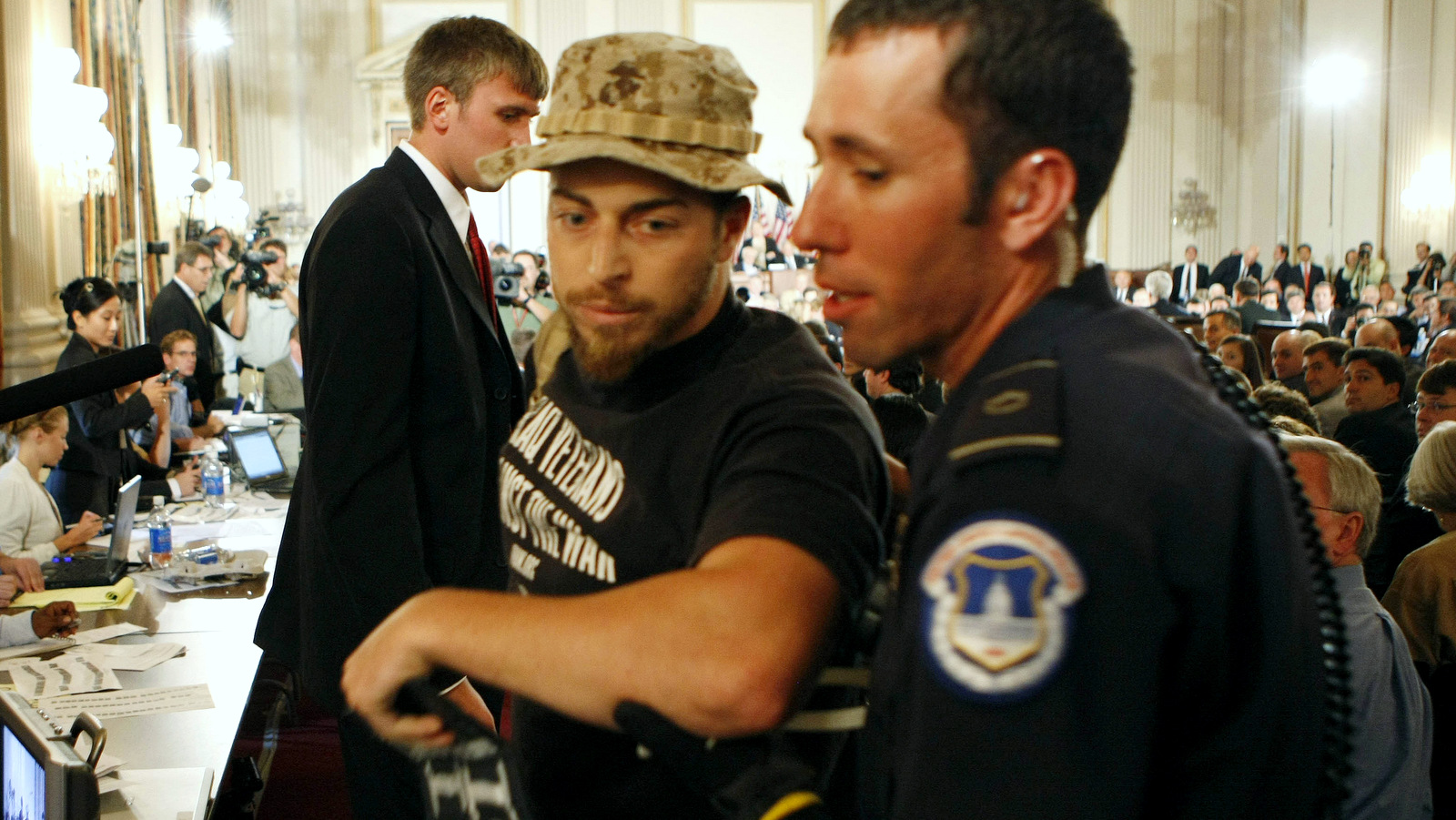
KITCHENER, Ontario — (ANALYSIS) U.S. government officials often pay lip service to praising members of the military. They talk of heroism, courage, selflessness — fine virtues which many people, not only soldiers, possess. These officials, they tell the world, send their hapless soldiers all over the globe to grant unsuspecting victims the same “democracy” that the people of the United States purportedly enjoy.
In 2001, shortly after the September 11 attacks, then-President George W. Bush addressed a joint session of Congress. During his remarks, he said: “They hate our freedoms: our freedom of religion, our freedom of speech, our freedom to vote and assemble and disagree with each other.” Former New York City Mayor Rudolph Giuliani echoed these sentiments as he sought the Republican nomination for president in 2008.
But are these “freedoms” extended to all U.S. citizens? Let us look at one population for whom these basic freedoms are denied: soldiers.
In 1999, an idealistic high school student by the name of Adam Kokesh enlisted in the U.S. Marine Corps. Five years later, he found himself in Iraq, where he grew increasingly disillusioned with the war. After completing his “tour of duty” (who comes up with these terms?), the Marine corporal joined Iraq Veterans Against the War, and protested continued U.S. involvement in it. During a demonstration in Washington in March 2007, Mr. Kokesh wore his Marine Corps uniform.
“When he was identified in a photo caption in The Washington Post, a superior officer sent him an e-mail saying he might have violated a rule prohibiting troops from wearing uniforms without authorization,” The Associated Press reported.
Although no longer on active duty, Mr. Kokesh was still a member of the “Individual Ready Reserve,” so was still technically a Marine. As such, his freedom to assemble was compromised. In June that year, Mr. Kokesh’s previously assigned “honorable discharge” was changed to “discharge under honorable conditions.”
“What that means is he is not dishonourable, and he’s only kind of honourable, so in effect, the board picked the safe route,” Mr. Kokesh’s lawyer, Mike Lebowitz, said.
Clearly, Mr. Kokesh was not entitled to the same rights as other U.S. citizens, simply because he was a soldier.
This is not an anomaly; rather, it is consistent with the deprivation of rights that soldiers in the U.S. military have experienced for two centuries.
A history of military justice
Elementary school students learn, erroneously, that, during the American Revolution, the colonies sought, as a unified group, to throw off the yoke of British rule. It is estimated however, that about one third of the colonists supported the revolution, one-third opposed it, and the remaining third was indifferent to the whole thing.
And even from that point, soldiers in that war were certainly deprived of basic rights, including due process.
For example, punishment for any infraction could be lashes, even 50 lashes for relatively minor infractions. Additionally, as Charles Royster reported, “Most generals approved of calculated blows to correct stubborn men.” Such violence perpetrated against a civilian would have caused the perpetrator to be arrested; however, within the military, it was completely acceptable.
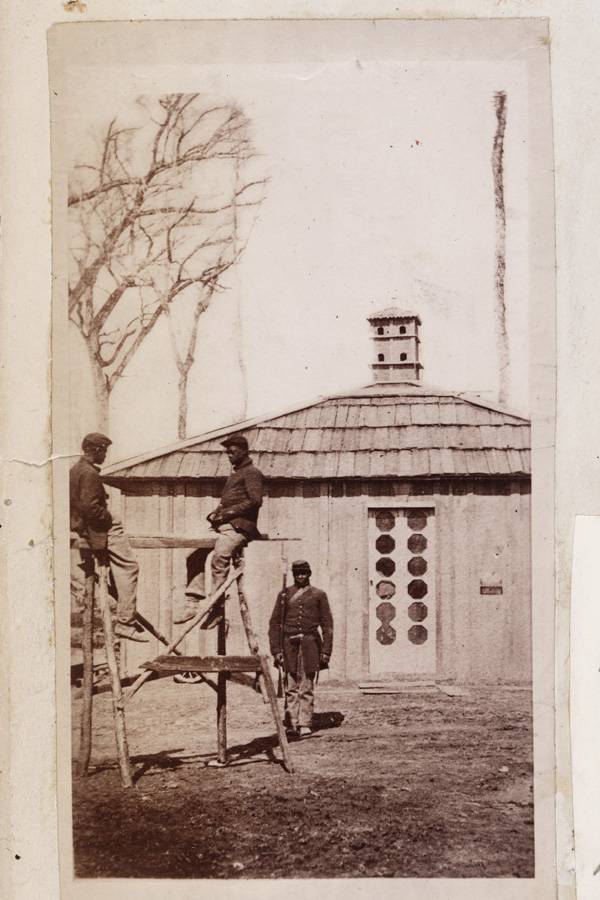
In 1776, John Adams created the U.S. military code, patterned after the British military. According to Robert Sherrill, he was “surprised when he got by with these harsh and archaic regulations, which were intended, he said, to produce not justice but discipline.”
During the Mexican-American War (1846-1847), a recruit from Louisiana lamented:
“We are worse off than slaves. Confined within narrow walls; very few liberties allowed us. … There is a great deal to be seen in this city [Mexico City] and much to please the fancy of any free man, but as a soldier I can appreciate nothing.”
During this war, Paul Foos wrote, the Army worked to keep soldiers isolated from “mainstream society, with its expectations of political and economic rights.”
The experience of another young man, who didn’t identify himself in his letter, is instructive. He enlisted in 1887, and was sent to the Jefferson Barracks in Missouri. The soldier and others, according to John McDermott’s 1997 article “Were They Really Rogues: Desertion in the nineteenth-century U.S. Army,” were “met by uniformed ruffians, and assigned to quarters with as much severity as though we had been prisoners guilty of some atrocious crime.” Further, one officer “persistently cursed the recruits and frequently drew his sword, threatening to drive it down our throats.” Commenting on the food: it “was the vilest I ever saw…” and “would have nauseated a hungry dog.” Non-military citizens would never countenance such actions, but members of the military have no recourse when experiencing them.
At the start of the Spanish-American War (1898), a 21-year-old drugstore clerk named Harry Carpenter enlisted in the Army. Two weeks later, while at sea, he wrote home describing conditions. Ellwood Bergey featured the letter in “Why Soldiers Desert from the United States Army:”
“The officers have every comfort on board, good quarters and good food, but the men are fed upon stale hardtack and canned corned beef, filled with chunks of fat, strips of entrails, and other refuse parts. Our quarters are vile and filthy, such as would disgrace even the lowest dens of filth in New York.”
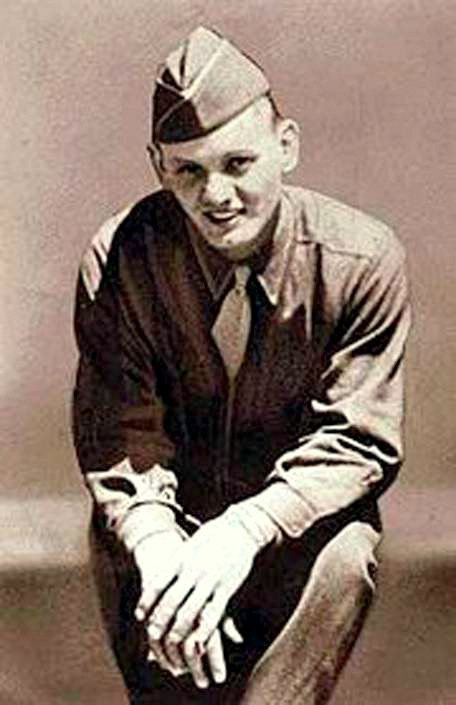
Carpenter further reported that men were put in the guard house if they tried to purchase food from the ship’s cook or drank ice water from the officers’ quarters. Purchasing food or drinking ice water are not crimes, except, perhaps in the U.S. military.
The shocking story of Pvt. Eddie Slovik, who deserted and was executed during World War II, clearly shows the lie of what is commonly called “military justice.” Like Mr. Kokesh years later, Mr. Slovik was not quiet about his thoughts; he left his area “without official leave” once, was told that if he did it again he could be charged with desertion, and clearly stated that he would, indeed, do it again. He wrote this letter to his commanding officer:
“I, Pvt. Eddie D. Slovik, 36896415, confess to the desertion of the United States Army. At the time of my desertion we were in Albuff [sic] in France. I come to Albuff as a replacement. They were shilling [sic] the town and we were told to dig in for the night. The following morning they were shilling us again. I was so scared nerves and trembling that at the time the other replacements moved out I couldn’t move. I stayed their [there] in my fox hole till it was quite [sic] and I was able to move. I then walked in town. Not seeing any of our troops so I stayed over night at a French hospital. The next morning I turned myself over to the Canadian Provost Corp. After being with them six weeks I was turned over to American M.R They turned me lose [sic]. I told my commanding officer my story. I said that if I had to go out their [sic] again Id run away. He said their [sic] was nothing he could do for me so I ran away again AND ILL [sic] RUN AWAY AGAIN IF I HAVE TO GO OUT THEIR [sic].
—Signed PvI. Eddie D. Slovik A.S.N. 36896415”
Mr. Slovik was ordered to stand trial on Nov. 11, 1944. During his trial, he was not represented by an attorney, but by a staff captain. Less than three months later, he was executed. “The United States didn’t shoot him as a punishment; that isn’t the first purpose of military justice. His execution was staged as a hoped-for deterrent,” William Huie explains in his 1954 book “The Execution of Private Slovik.”
Any non-military citizen accused of a capital crime is entitled to representation by an attorney. A conviction almost always results in an appeal, or multiple appeals, before the sentence is carried out. Mr. Slovik, as a soldier, did not have these basic rights.
Just following orders…
Additionally, there is the old saw of “following orders.” Some of the most heinous crimes in history have been committed by soldiers who were only “following orders.” During the Philippine-American War (1899-1902), Brig. Gen. Jacob Smith issued direct orders to those under his command: “Kill and burn, kill and burn, the more you kill and the more you burn the more you please me.” Those in his unit followed those orders to the letter.
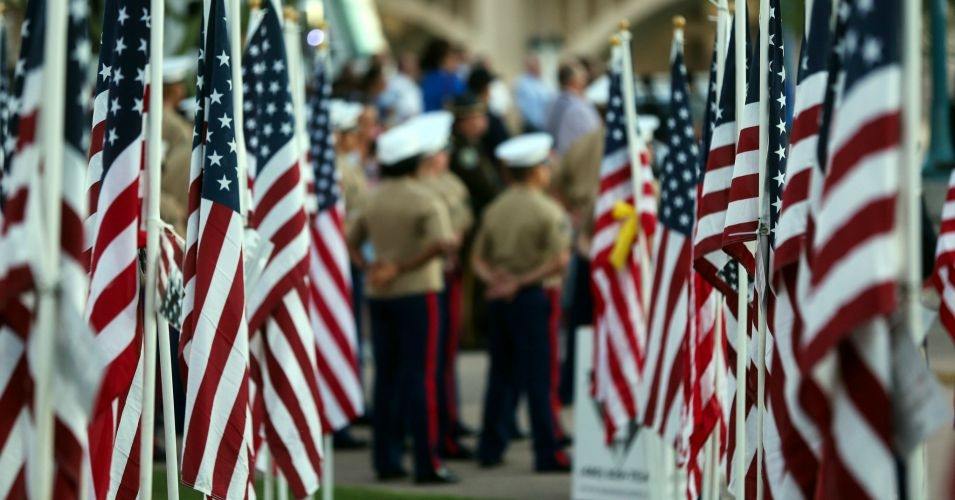
Unlike other citizens, soldiers can’t quit their job at will; they can’t take time off for vacations when they want to; they cannot live where they choose, socialize at will, or take courses without approval. And as Mr. Kokesh learned, they cannot participate in anti-war activities wearing whatever they feel like wearing.
The argument is sometimes made that these restrictions are necessary for a well-disciplined military force. It must be noted that there are many high-risk occupations requiring discipline, such as police officers and firefighters, whose employees enjoy the same rights as their fellow citizens. Yet in major fire situations, for example, firefighters must be able to rely on and trust each other, as one might expect is also required of soldiers in combat (the legality and perceived necessity of war is a topic for another essay).
As the U.S. struts across the world stage, forcing its peculiar brand of democracy upon its unsuspecting, often oil-rich, victims, it deprives its own soldiers of the rights it purports to be spreading. This is just another example of the blatant hypocrisy that is so much a part of the United States of America.


